Hi guy i try to generate 50 number with 5 digit depend on user total summary. For example, User give 500000 and then i need to random number with 5 digit by 50 number equal 500000
i try this but it isn't 5 digit number
int balane = 500000;
int nums = 50;
int max = balane / nums;
Random rand = new Random();
int newNum = 0;
int[] ar = new int[nums];
for (int i = 0; i < nums - 1; i++)
{
newNum = rand.Next(0, max);
ar[i] = newNum;
balane -= newNum;
max = balane / (nums - i - 1);
ar[nums - 1] = balane;
}
int check = 0;
foreach (int x in ar)
{
check += x;
}
i tried already but value inside my array have negative value i want to get only positive value
Please help me, how to solve this and thank for advance.
